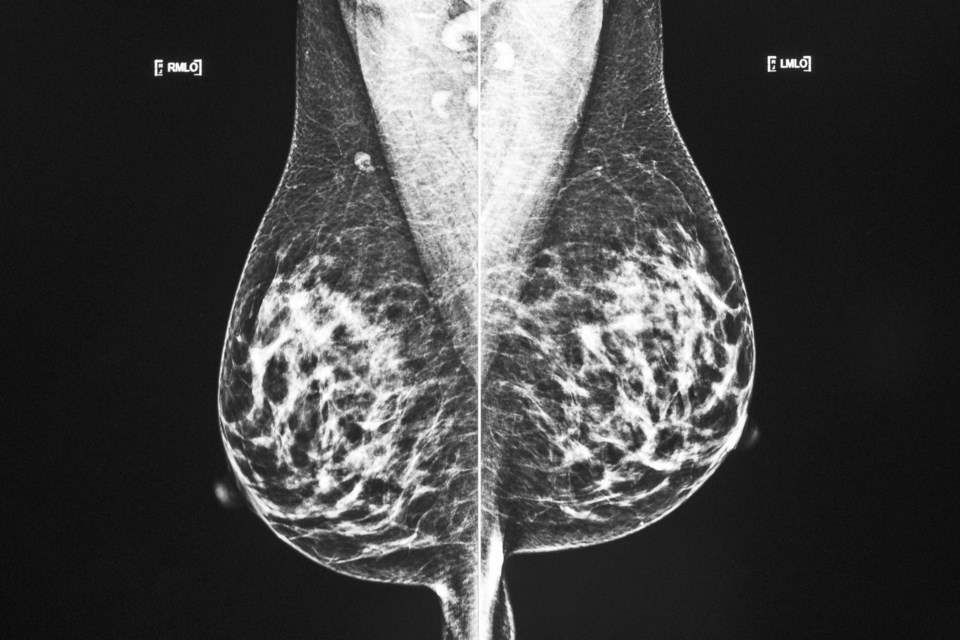A new study projecting declining rates of cancer cases and deaths in Canada demonstrates the success of prevention and early detection programs, but also highlights areas where more work is needed to save and prolong lives, researchers say.
"The good news is that more people are surviving with and beyond their cancers," said lead author Darren Brenner, an associate professor in the oncology and community health sciences departments at the University of Calgary.
The study, published in the Canadian Medical Association Journal on Monday, estimates the number and rates of new cancer cases and deaths expected throughout 2024.
The rates of lung, colorectal and prostate cancers are projected to decrease this year, but less common cancers — including melanoma, liver and kidney cancers and non-Hodgkin lymphoma —are on the rise, the projections suggest.
Breast cancer incidence rates are relatively stable and mortality rates are decreasing, Brenner said.
"A lot of that has been from the successes in screening approaches with mammography through organized screening programs," combined with improved treatment options over the years, he said.
There has been "great progress" in reducing colorectal cancer cases and deaths, said study co-author Jennifer Gillis, an epidemiologist and senior manager of surveillance at the Canadian Cancer Society.
"The cancer incidence rate for colorectal cancer, after we account for differences in age and the size of the population, have been declining significantly in recent years," she said.
"This is in large part due to the organized screening programs that we have available across Canada, where people can be screened for precancerous polyps that can be removed before the cancer develops," she said.
Although cancer rates and deaths are decreasing overall, the study estimates there will be 247,100 new cancer cases and 88,100 cancer deaths in 2024. That's an increase from previous years largely due to a growing and aging population, Gillis said.
The combination of an increase in new cancer cases plus a rise in the number of people surviving cancer has significant implications for the health-care system, the researchers said.
"The system needs to be able to treat and diagnose more Canadians on a year-to-year basis," said Brenner.
"The system (also) needs to be able to adapt and accommodate larger growing numbers of people who will be living with and beyond their cancer through various survivorship care and other types of health care," he said.
Alyssa Vito got breast cancer at age 23. Now 36, she says having a primary-care provider is critical for survivors to manage a lifetime of followup screenings.
"There's really a need for either some integrated care with family physicians or some transitional care as patients move away from their oncology clinic back to the family care provider," said Vito, who lives in Port Perry, Ont.
She has been able to navigate some of her own care because she works in cancer research and is familiar with the health-care system, but worries about the majority of other patients who don't have that background.
"We do have all of these survivors and that's great, but a lot of them will be at high risk of developing cancer again," Vito said.
"We want to make sure that those people don't fall through the cracks and that they are having active surveillance and active monitoring when they need it."
Lung cancer is expected to remain both the most diagnosed cancer and most common cause of cancer deaths in 2024, even though the rates are decreasing due to tobacco control, earlier detection and improved treatments, Gillis said.
Among the cancers that are on the rise, melanoma is especially concerning, the researchers said.
"Melanoma is a preventable cancer and it has been increasing for many years," Gillis said.
"It's a reminder that we do really need to have policies and awareness campaigns that are available to people to really underscore the importance of sun safety," she said.
The study also highlights the need for more research into other cancers that are causing more deaths and don't have routine screening methods, including liver and kidney cancers, the researchers said.
This report by The Canadian Press was first published May 13, 2024.
Canadian Press health coverage receives support through a partnership with the Canadian Medical Association. CP is solely responsible for this content.
Nicole Ireland, The Canadian Press



